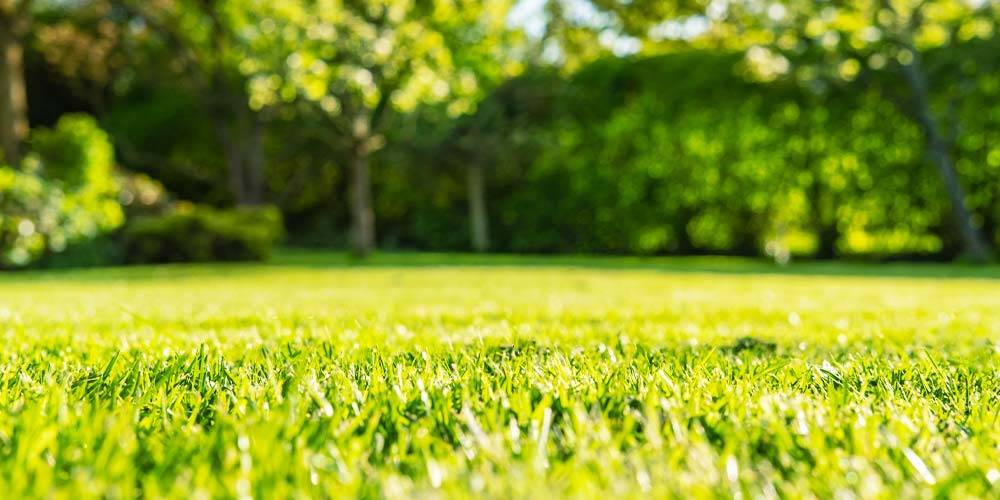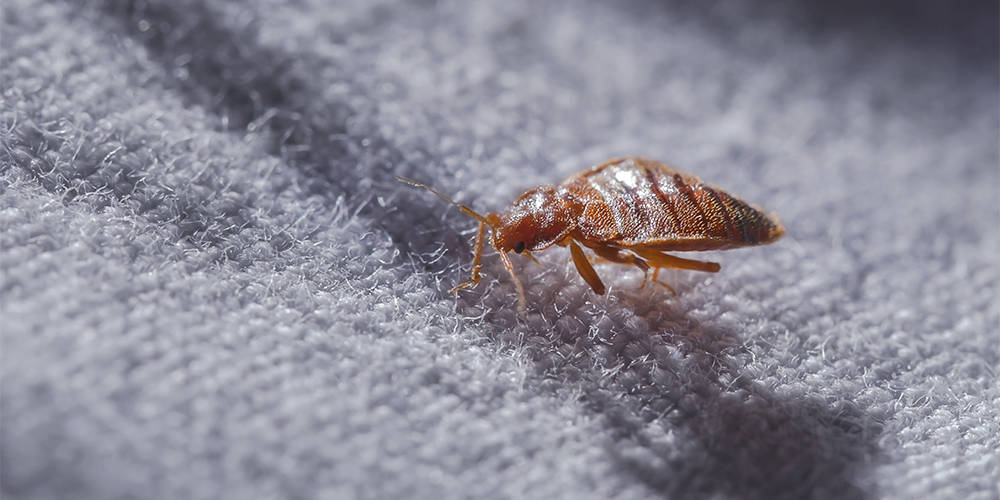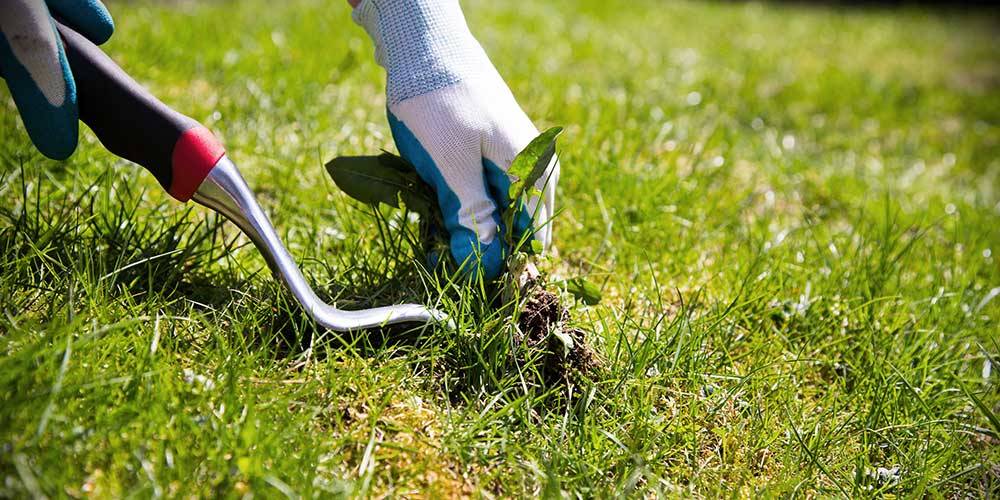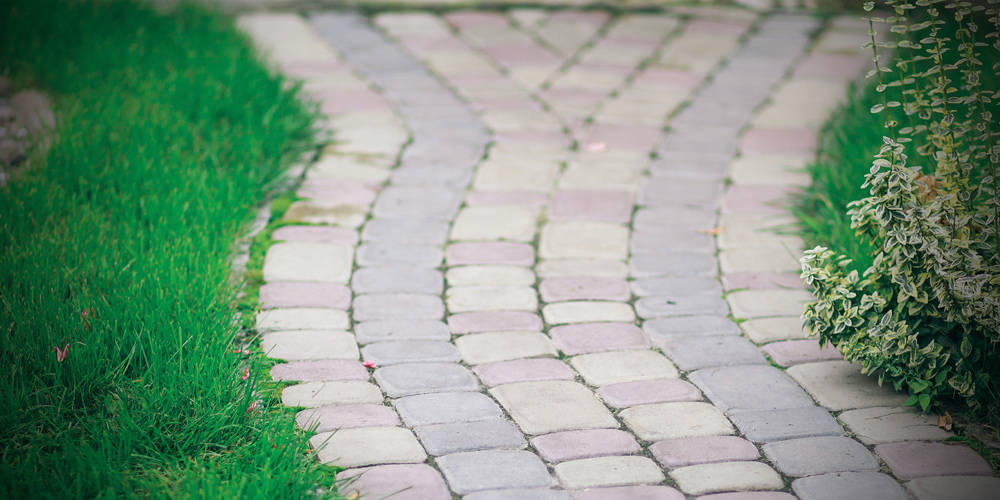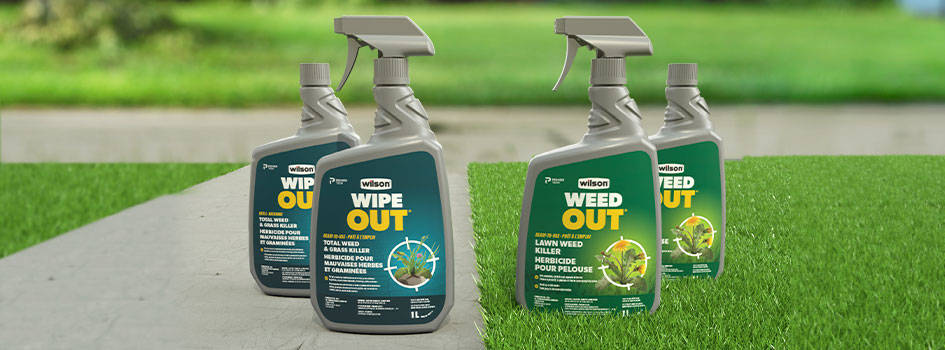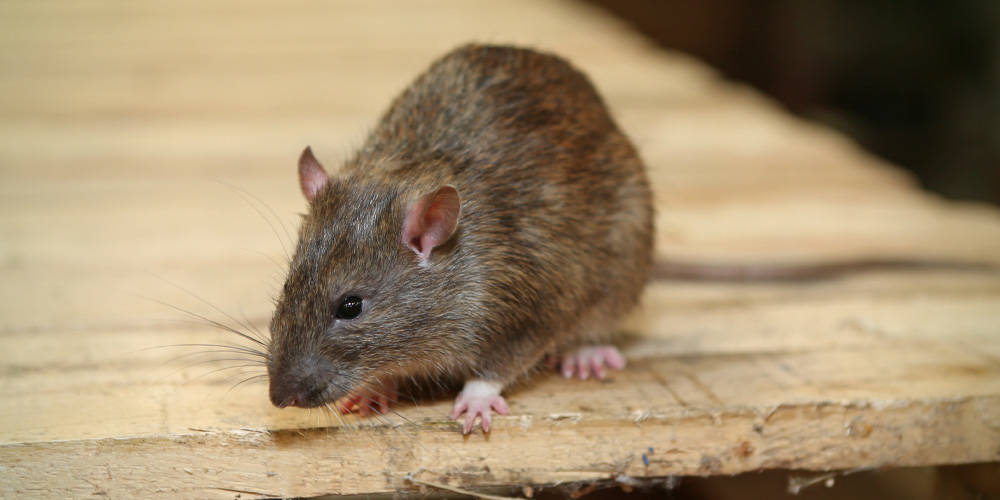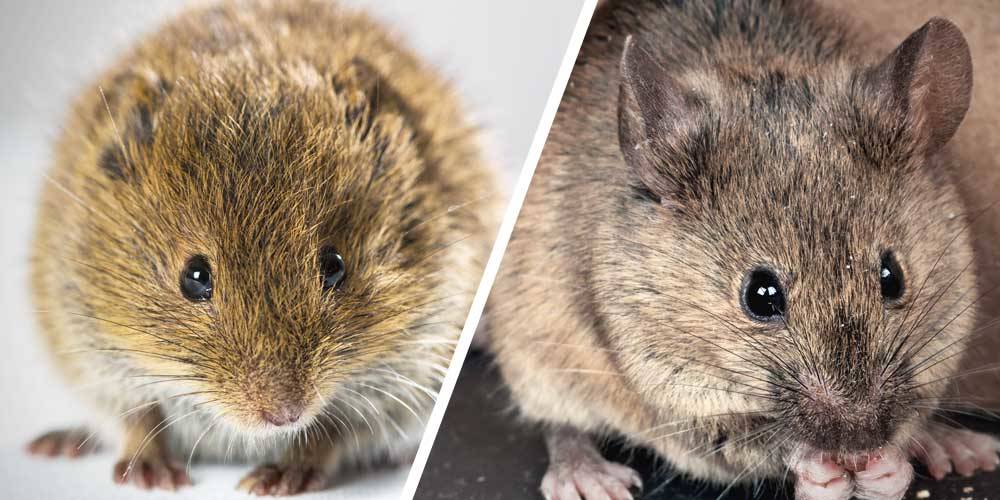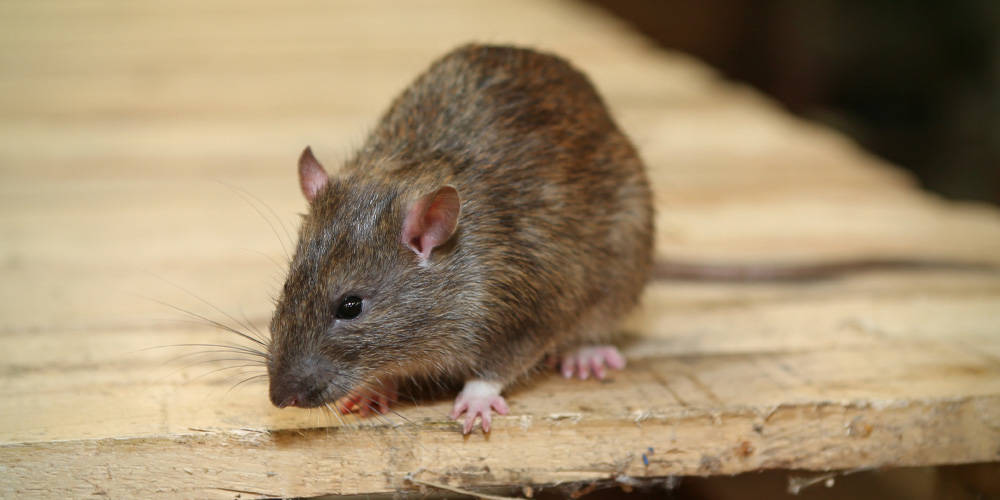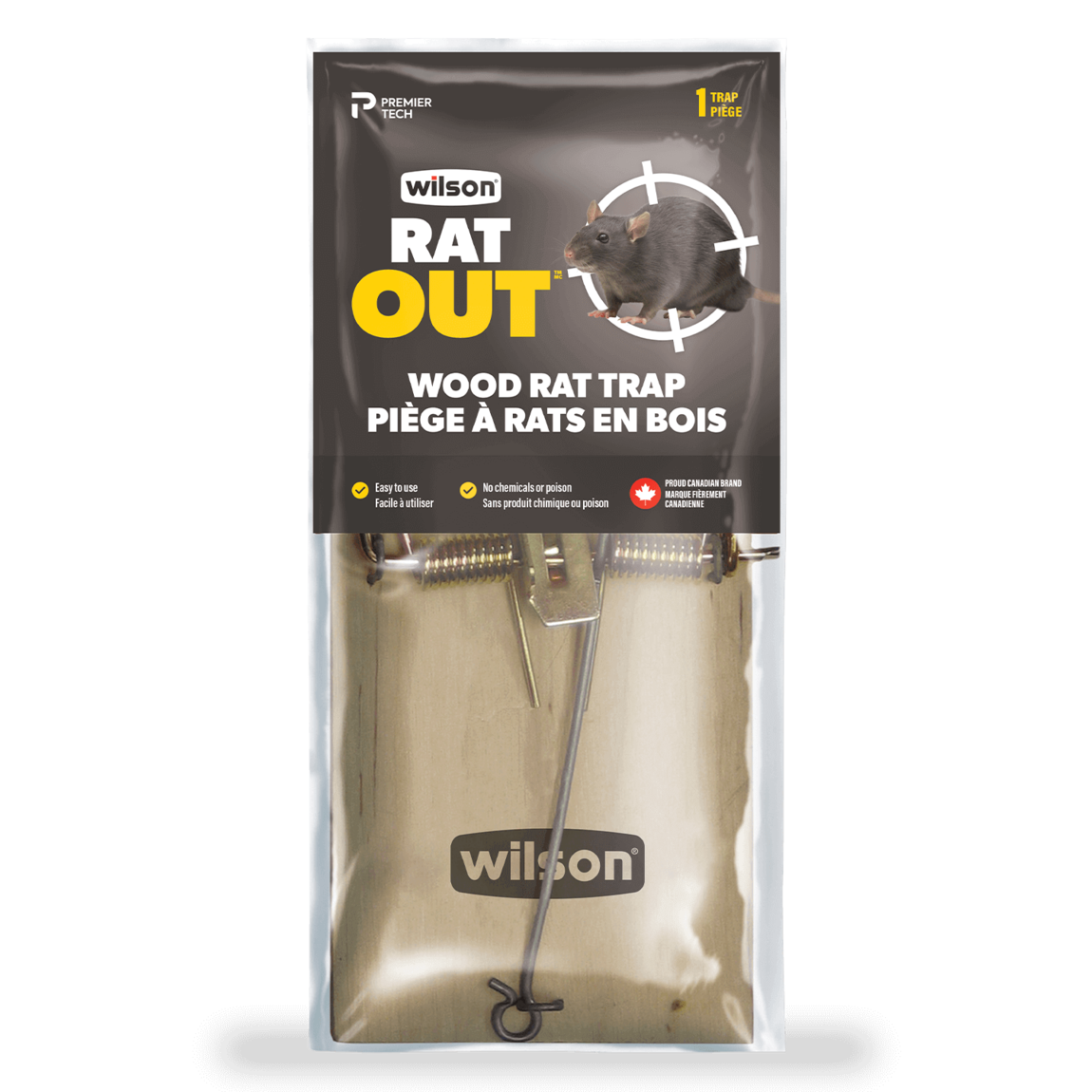

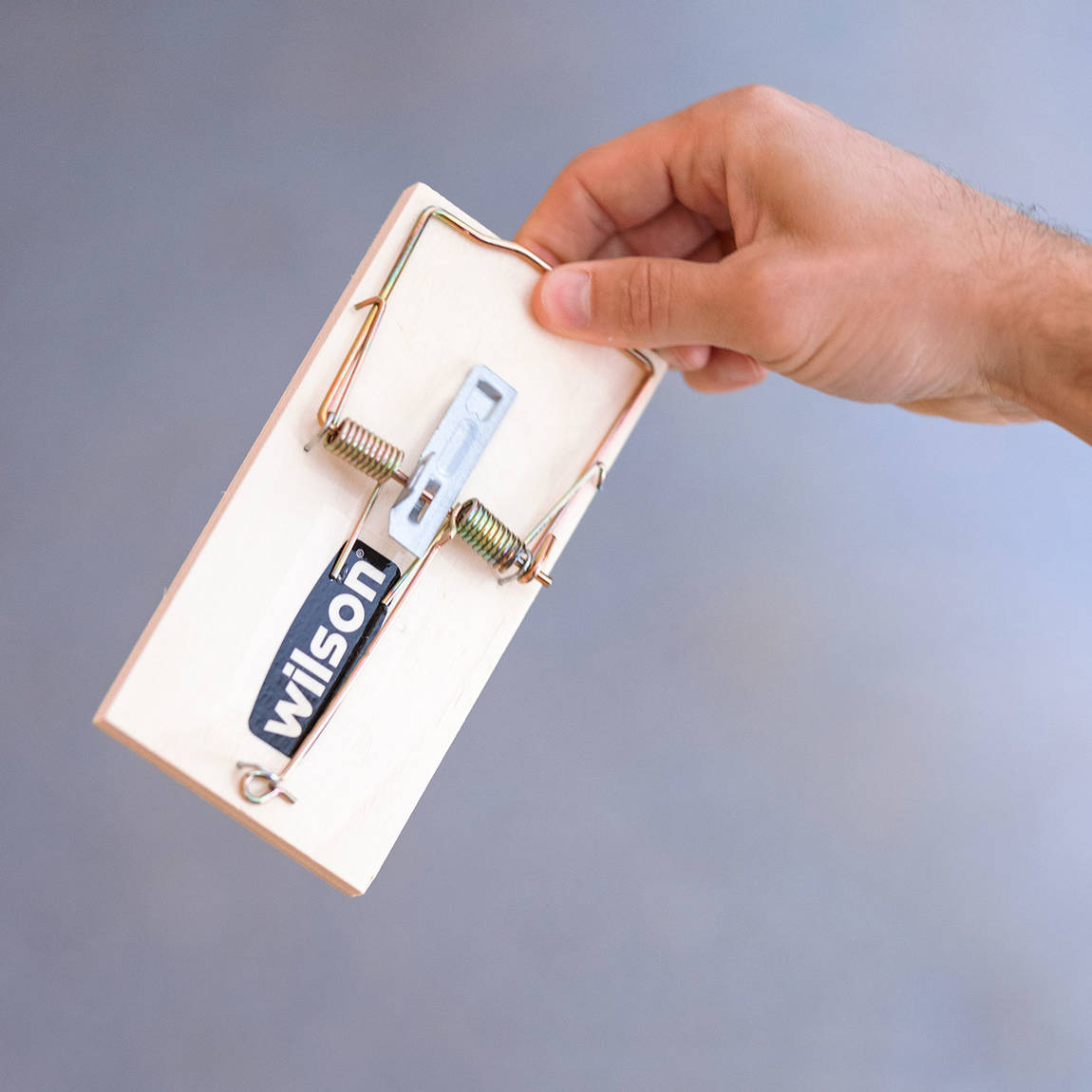

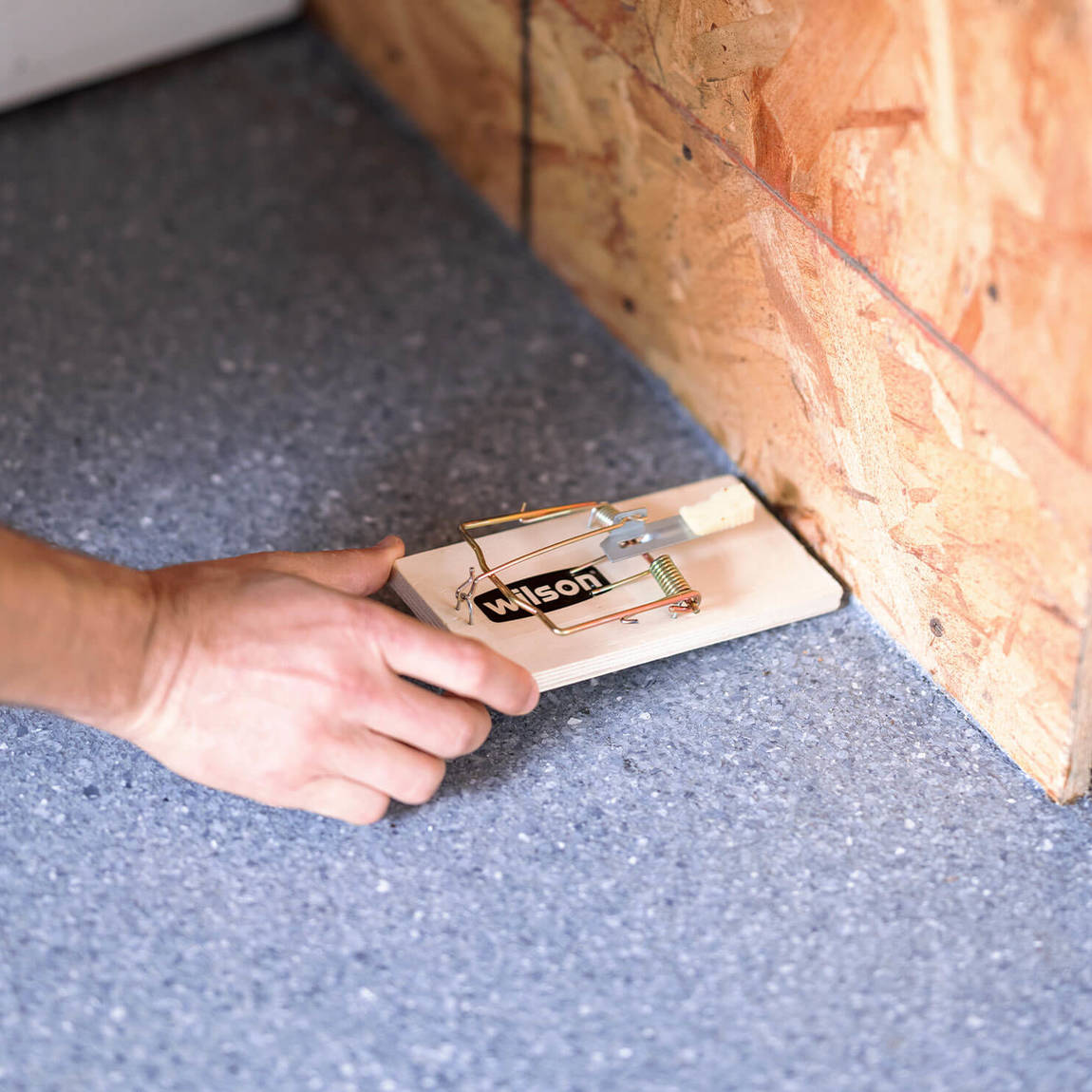

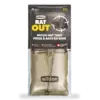
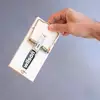
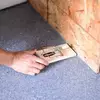
Wilson® RAT OUT™
Wood Rat Trap
Former name: Wilson® PREDATOR® Wood Rat Trap
You’ve got rats in your home. You don’t want to be part of a never-ending rat race – you want them gone now! But you’re not all that comfortable with using poison or chemicals. Don’t worry. Get RAT OUT Wood Rat Traps. They’re top quality hardwood traps that effectively control rats indoors and outdoors.They're easy to set and will quickly kill pesky rodents. You can dispose of rodent or rodent and trap in garbage. Use cheese, salami, bacon, peanut butter or any sweet-smelling foodstuffs as bait.
Kills rats quickly
Kills rats quickly
No poison, no chemicals
No poison, no chemicals
Top quality hardwood trap to securely hold strong spring-loaded mechanism
Top quality hardwood trap to securely hold strong spring-loaded mechanism
Easy disposal of rodent or trap with rodent
Easy disposal of rodent or trap with rodent
Where to use
Indoors
Outdoors
Suggested trap locations for rat control
- In suspended ceilings
- In lofts and attics
- In kitchens and food preparation areas
- In closets
- In garages and outbuildings
- Under floorboards and in wall cavities
- Under garden structures
- In access points to buildings
- In or under greenhouses
- Near livestock
- Around water features
Effective against
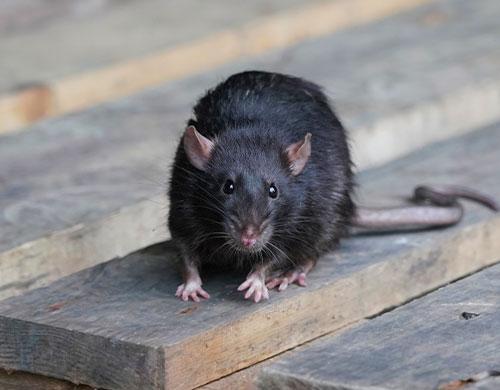
Rats
Rats
Step 1
Use cheese, salami, bacon, peanut butter or any sweet-smelling foodstuffs as bait.
Step 2
Place bait on the hook at the tip of the bait holder. The bait holder is the metal piece between the springs on the trap.
Step 3
Move the long rod at the other end of the trap backwards away from the trap.
Step 4
Carefully pull back towards you the U-shaped metal bar with the springs and hold it down with your thumb or foot.
Step 5
Place the long rod over the U-shaped metal bar and engage it into the opening (hole/slot) on the bait holder. The bait holder is now slightly elevated and the trap is set.
Step 6
While lifting trap, be careful to grip sides only. Move trap to areas of rodent infestation.
Tips
Place as near to wall as possible with bait facing wall.
Warnings
- Take care when loading bait and moving trap. Spring is extremely strong and could cause damage to fingers.
Dispose of rat and trap together into household garbage.
Keep out of reach of children.
For additional product information or in case of emergency, spills or fire, call toll-free 1-800-268-2608.
General precautions
- Keep out of reach of children and pets.
There are no active ingredients. For bait use cheese, salami, bacon, peanut butter or any sweet-smelling foodstuffs.
Frequently asked questions about Wilson RAT OUT Wood Rat Trap
The trap has to be baited and set, and placed along walls where you suspect activity. The baited trap attracts the rat, and as it attempts to feed on the bait, it trips the spring and is killed.
The trap uses no poisons or chemicals. However, the heavy spring mechanism is extremely strong and would cause damage to fingers. Because of this, it is extremely important to keep the “set” trap out of reach of all pets and children.
Always use quality bait that rats like, for example, cheese, salami, bacon, peanut butter or any sweet-smelling foodstuffs. Peanut butter is an ideal option since it sticks to the bait holder, doesn’t fall off, and rats have to climb over the trap to get to it. Place bait on the hook at the tip of the bait holder. The bait holder is the metal piece between the springs on the trap.
Move the long rod at the other end of the trap backwards away from the trap. Carefully pull back towards you the U-shaped metal bar with the springs and hold it down with your thumb or foot.
Place the long rod over the U-shaped metal bar and engage it into the opening (hole/slot) on the bait holder. The bait holder is now slightly elevated and the trap is set. While lifting the trap, be careful to grip sides only. Move traps to areas of rodent infestation.
Check your traps regularly. Once tripped,dead rats need to be cleared, and the trap needs to be reset and put back in place, if you want to reuse it. Or throw out the trap and dead rat, and replace it with a new one until you’re sure that there are no more rats in your house.
Always put traps in areas where there is a lot of activity. If you see rat droppings, this is a sign that traps should be placed in that room. Place traps along the walls and edges of your room. Rats aren’t likely to go through the centre of the room unless they are being chased. Instead, they tend to scurry along the edges of your room. Put traps along the walls near entry points like doors and windows.
Move your traps to different areas if no rats have been caught within a few days of putting them in place. Sometimes you have to experiment with placement to figure out what will work inside and outside your home. Stick with the same type of bait once you find something that works. This is essential to trapping as many rats as possible and ridding your home of an infestation quickly. Refresh bait every week if it does not lure rats.
Rat traps can also be used as a preventative option, in areas unaccessible to pets and children, such as in your garage, basement or attic year-round, so you don’t end up with an infestation. These traps’ bait only needs to be refreshed monthly.
Many people realize they have a rat problem when the rats have already entered and can be heard in an attic or scratching inside walls. At times, rats are first discovered when electrical wiring or pipes are chewed and damaged. It can also be quite alarming to walk into a kitchen or pantry and find your food storage has been raided by rats.
If you suspect you may have rats but have not seen one, you may notice other signs like brown smudges on walls or other items caused by rat grease as they rub these surfaces. Often the first sign is the presence of rat droppings in pantries, cabinets and other places in the home.
Haven't found the answer to your question?
We are here to help you!
Similar products
To help you kill rats
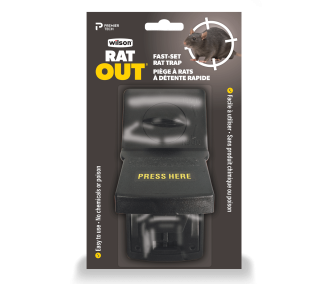
RAT OUT
Fast-Set Rat Trap
Stop rats in their tracks with the Fast Set Rat Trap by Wilson Control. Solve your rodent problem quickly and efficiently with completely touch-free disposal.
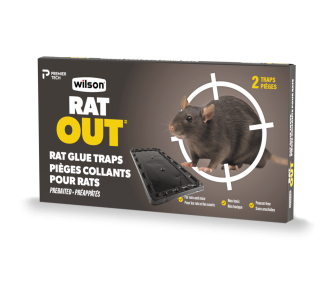
RAT OUT
Rat Glue Traps
Eliminate your rat problem efficiently and humanely with Wilson Control's glue traps. These are the next generation of rat traps, both reliable and easy to use.
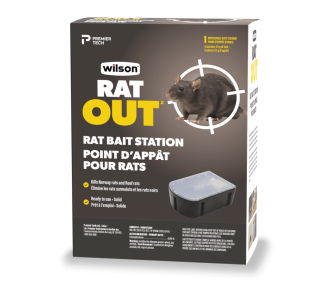
RAT OUT
Rat Bait Station
Rodents: we don't like them any more than you do. Kill mice in their way with Wilson Control's anticoagulant rat bait station, the best in rodent defense.
